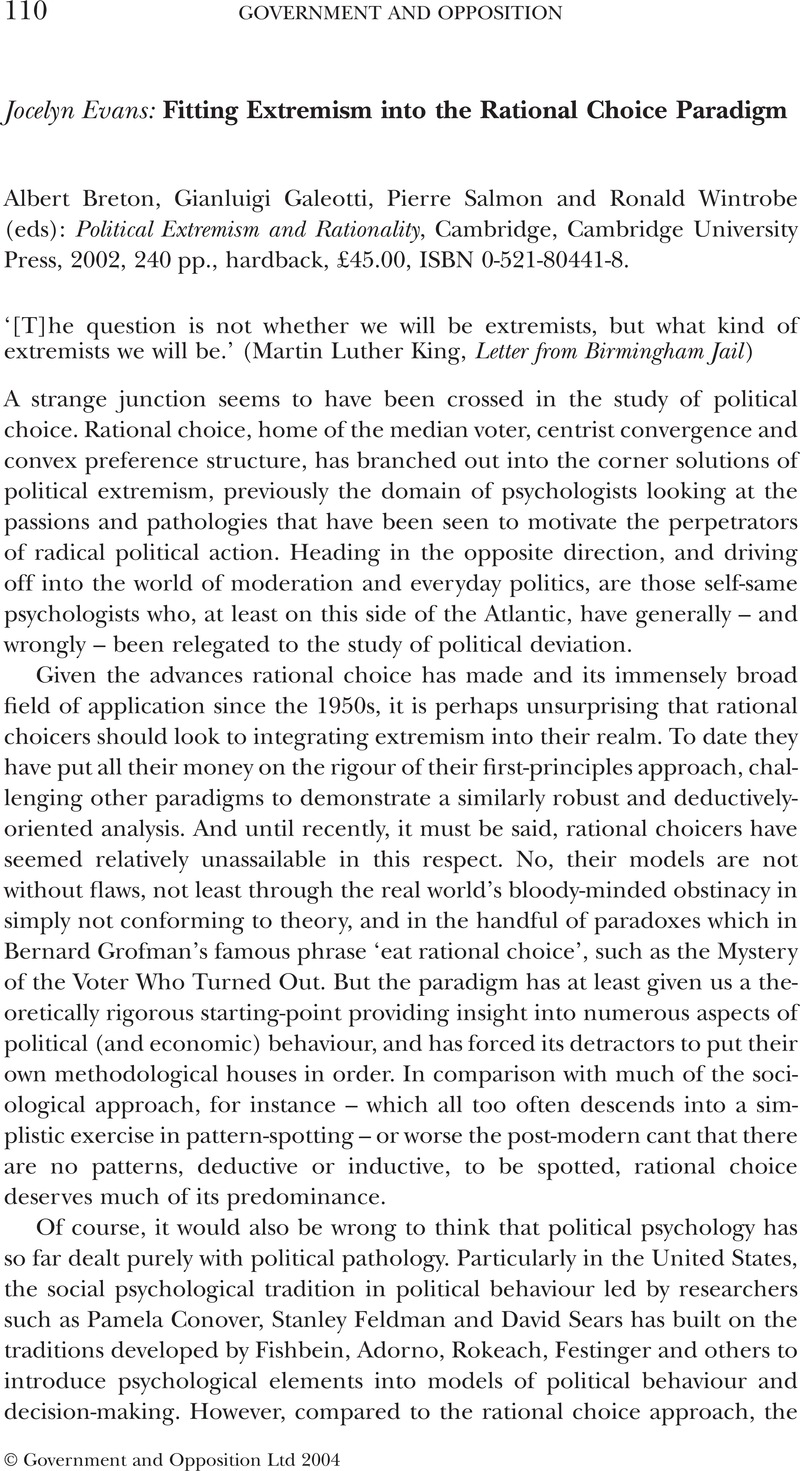No CrossRef data available.
Published online by Cambridge University Press: 28 March 2014

1 E.g. Herbert Simon, Models of Thought, New Haven, Yale University Press, 1979; Daniel Kahneman, Paul Slovic and Amos Tversky, Judgment Under Uncertainty: Heuristics and Biases, Cambridge, Cambridge University Press, 1982.
2 George Marcus, W. Russell Neuman and Michael MacKuen, Affective Intelligence and Political Judgment, Chicago and London, University of Chicago Press, 2000.
3 Philip Converse, ‘The Nature of Belief Systems in Mass Publics’, in David Apter (ed.), Ideology and Discontent, New York, Free Press, 1964. The largely illusory nature of increased mass cognitive mobilization in the US during the 1960s and 1970s is presented in Eric R. A. N. Smith, The Unchanging American Voter, Berkeley, University of California Press, 1989.
4 John Mueller, Capitalism, Democracy and Ralph's Pretty Good Grocery, Princeton and Oxford, Princeton University Press, 1999.
5 Milton Rokeach, The Three Christs of Ypsilanti, London, Arthur Barker, 1963; Milton Rokeach, The Open and Closed Mind. Investigations into the Nature of Belief Systems and Personality Systems, New York, Basic Books, 1960.
6 Contrast this with the views of Malcolm X and the Nation of Islam whose views on racial separation would still be regarded as extreme.
7 An interesting take on the pragmatism–ideology axis can be found in Giovanni Sartori, ‘Politics, Ideology and Belief Systems’, American Political Science Review, 63, 1969, pp. 398–411.